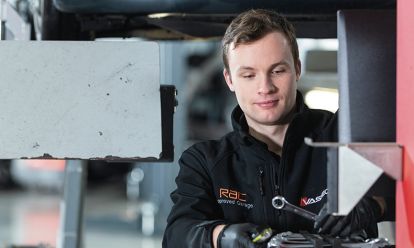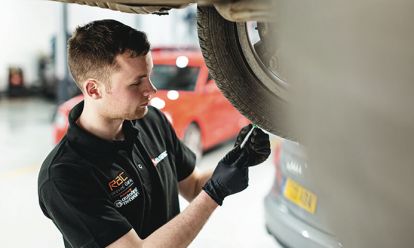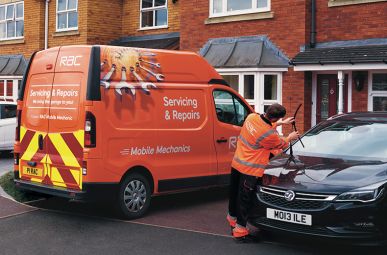From the fuel you use to the way you insure your car, it pays to be savvy and aware of the latest developments.
Here's an extensive list of tips to save money as a motorist.
1. Fill up at the supermarket
Fuel is easily the most expensive part of day-to-day motoring - so why not start there?
There's a myth that supermarket fuel is somehow less efficient or bad for your engine. However, supermarket fuel conforms to the same standards (the British Standard) as branded fuels supplied by the major oil companies.
Every engine is designed to work with supermarket fuel. For several decades engines have been fitted with systems that automatically prevent issues (like 'knock').
Using a higher grade of fuel will provide an extra degree of fuel efficiency but it may not be significant compared with other factors which affect fuel economy, most notably driver behaviour, vehicle load, tyre pressures, traffic and weather conditions.
Make sure you fill up at forecourts away from the motorway as well if you can manage it. There are noticable fuel price savings to be had if you're prepared for just a few minutes of extra driving - even just the first fuel station off the motorway slip road exit can take pounds off your fill.
It's worth reading about different fuel types and the best fuel for your car to find out if it's worth spending extra for 'better' fuel.
RAC Fuel Watch provides the latest petrol and diesel prices in the UK.
2. Buy economical tyres
Yes, the type of tyre makes a big difference. While it might be tempting to go for the cheapest available, that can prove to be a mistake in the long run.
Not only do such tyres not perform as well as more expensive tyres (tests show they often increase stopping distance and have a negative effect on handling and grip), but they may also hit your fuel economy and need replacing more regularly.
Something that not many people know to look out for is the tyre's EU tyre label. All tyres sold are fitted with one and it includes the fuel efficiency rating of the tyre.
An ‘A’ rating means the tyre decreases the energy lost through the tyre (often referred to as ‘low rolling resistance’), while a G rating is the worst performing - resulting in increased CO2 emissions and fuel consumption.
Research conducted by Which? found that a good quality ‘eco’ or ‘energy saver’ tyre could improve fuel economy by around 2.5mpg compared with the worst tyre for rolling resistance.
That could slash £50 off your yearly fuel bill, helping to offset the cost of buying good quality, premium brand tyres.
3. Don’t pay extra for premium fuel
You’ve probably noticed the so-called ‘premium’ fuels when filling up with petrol or diesel.
The retailers claim that these fuels offer performance and economy advantages, whilst cleaning and protecting your engine.
In reality, unless you’re driving a performance vehicle with a highly tuned engine, you’re unlikely to see significant improvements by using fuel with a higher octane (petrol) or cetane (diesel) rating. You will, however, pay 10 to 20p a litre more for the privilege.
Research conducted by the American Automobile Association (AAA) found that drivers in the United States were wasting more than $2.1 billion by using premium-grade petrol and diesel in vehicles designed to run on standard fuels.
If you’re still keen, our advice would be to experiment with two or three tanks of premium fuel. If you see a significant increase in the number of miles you can squeeze out of a tank (as well as how the engine runs and performs) then it could be worthwhile in the long run.
Knowing what fuel is best for your car is important when looking to cut costs.
Stay up to date with the lowest local prices on RAC Fuel Watch.
4. Consider leasing rather than buying
More than 90 percent of new cars are bought on finance, according to the latest Finance & Leasing Association statistics.
Why such a big share? The benefits of leasing include fixed monthly repayments, no concerns about car depreciation and the flexibility to switch to a new car at the end of the contract.
For electric and hybrid cars, monthly repayments are comparable to their petrol and diesel counterparts; whereas if you were to buy outright, their costs are still quite different, so leasing remains a very popular option for drivers looking to go electric.
Some leasing providers also give you the option to add on a service and maintenance package which is spread across the length of the contract.
You'll also find even more affordable and flexible leasing deals if your company offers a salary sacrifice scheme. This lets you save on tax as well as giving you access to cheaper business leasing options, and you'll typically avoid a high initial deposit too.
Maintenance packages can include all scheduled maintenance such as MOT, servicing and tyre replacement. Breakdown and roadside assistance can also be included. All vital services which are often cheaper when bought in this way.
5. Drive gently when the car is cold
Cars are at their least efficient when they are cold. Winter driving comes with its own challenges.
If you drive quickly straight from start-up, you are redoubling the wasted fuel, and also wearing out the engine more quickly in the process because the vital lubricating oil is not up to temperatyre.
Show some mechanical sympathy and you’ll immediately start saving money.
On a related matter, you shouldn’t allow your engine to idle for too long.
Today’s engines are designed to operate from the moment you turn the key – warming the engine for anything more than a few seconds is no longer required.
If you like the cabin to feel warm on a cold day, it might be worth investing in a car with heated seats and a heated steering wheel.
Remember to turn them off when you’ve warmed up, as they will increase your fuel consumption when switched on.
Trouble getting started in the cold? These are the probable causes and fixes.
6. Check your tyre pressures
This simple check can save you big. Knowing how to check tyre pressure is very important for all drivers.
OK, it might cost you 50p or £1 to do it at a filling station, but the savings soon add up.
You could also buy an electric pump and check and inflate yourself, rather than go to a garage.
Tyre inflators are available from the RAC Shop.
Tyres under inflated by 15psi - a difference you may not notice from a visual glance - can use 6% more fuel.
That’s the difference between averaging 40mpg and 42mpg.
Or, to put it another way, an additional 26 miles from a 60-litre tank of fuel.
Based on the current average price for a litre of diesel, you’ll spend £1,365.08 a year at 40mpg or £1,300.10 at 42mpg – a difference of £65.
Find out how to check your tyres.
Service, repair or MOT?
You can trust the RAC with our local approved garages and NEW mobile mechanics.
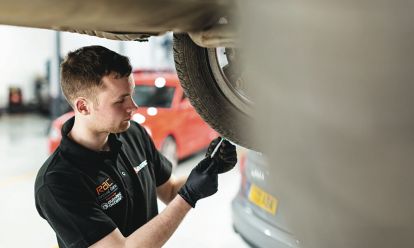

7. Hunt out cheap fuel
You can save many pennies per litre – and therefore many pounds over the course of a year – by searching for the cheapest fuel.
Driving out of your way to fill up with cheap fuel is a false economy, but what steps can you take to ensure you don’t spend more than is necessary?
Get to know the petrol stations in your local area, making a mental note of the price per litre as you drive by. And always avoid motorway services.
You can find a difference of a few pence on the same street and it might be worth making a small detour to make a big saving.
Also take advantage of supermarket and fuel retailer loyalty cards which can come in handy in cutting fuel costs.
The more you fill up, the more points you’ll accrue, which can be exchanged for vouchers when you come to fill-up.
Small changes matter, because at 42mpg and 10,000 miles a year, a 10p increase in the price of diesel would cost an extra £100.82 over the course of 12 months.
Remember though, driving far out your way in order to pick up cheap fuel is a false economy, which becomes even more negligible the less economical your car.
8. Choose wisely: petrol or diesel?
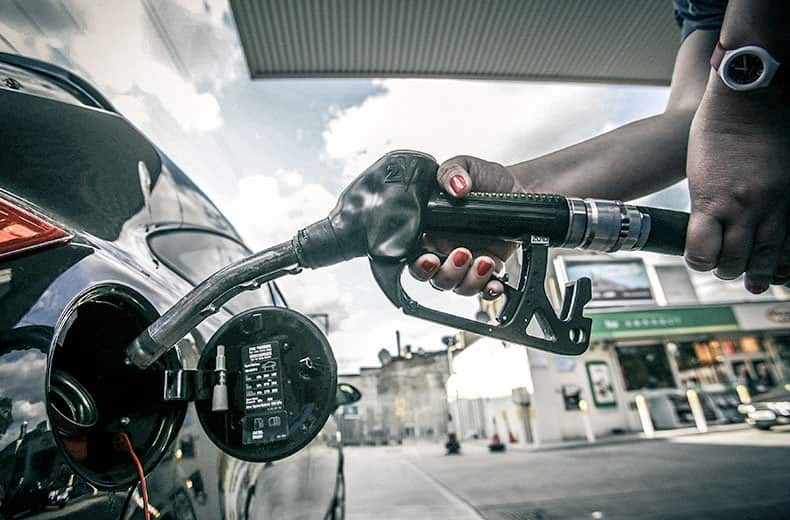
Once, buying a diesel instead of a petrol would automatically save you money. That’s not necessarily true today.
For starters, diesels cost more to buy or lease than petrols: on a smaller car, the premium can be 10% or more.
Diesel fuel costs more to buy than petrol and, while diesel cars usually give better economy, efficient new petrol engines are catching up. That's also not counting the generally higher maintenance costs of diesels, and any Clean Air Zone charges for older diesel models.
Unless your annual mileage is very high or you predominantly drive on motorways or other major roads, you might be best sticking to petrol.
As a rule of thumb, if you drive more than 10,000 miles in a year - and in particular tend to drive on faster roads - buying a diesel car could make sense. Anything less than that and a petrol-engined car might make more sense.
Oh, and don't forget about the cheapest hybrid cars or electric cars - these can quickly start saving you money.
9. Take an advanced driving course
You can tweak your driving style to motor more economically.
An advanced course will teach you these - you’ll still make good progress but be doing it in a more efficient way.
Hypermiling is the art of driving as economically as possible and once you take on the challenge, it can become addictive.
Advanced driving courses could also bring down the premiums on your annual car insurance policy.
10. Haggle on car insurance
Car insurance can be one of the biggest motoring costs you face annually.
Figures released by the Association of British Insurers (ABI) revealed that, on average, comprehensive cover costs £621 a year.
Don’t simply accept your auto-renewal quote, give your insurer a call to see if you can haggle and reduce it.
Before you do so, make sure you see how well your quote and benefits compare against other insurance providers.
You should also consider the factors that influence the cost of your premium.
These include the type of car, where you live, where the car is kept overnight, your age, driving experience and your history of claims.
While you’ll be unable to change your personal circumstances, you can make savings by storing the car in the garage, reducing the number of miles you drive or you could purchase ‘black box’ insurance. You could consider borrowing a car when you need one and taking out temporary car insurance.
Policies can be set up within 15 minutes and taken out for as little as an hour and up to 30 days. For learner drivers, there are flexible, short-term learner driver policies that allow you to pay only for what you need until you pass your test. From a day up to 5 months.
RAC members often pay less for insurance with the RAC.
11. Claim for pothole damage
Pothole-related breakdowns are on the rise - this winter, almost four-in-ten breakdowns the RAC attended to were related to pothole damage.
It's also estimate that there are a million potholes on the roads in England and Wales alone, and data from the RAC Pothole Index makes for alarming reading.
Unless you're an expert at dodging them, your chances of falling victim to pothole damage are relatively high. If a pothole causes damage to your car, you may be able to claim compensation.
The chances of your claim being successful, however, will significantly depend on whether the pothole has already been reported as councils cannot be held liable for a defect they are not aware of.
So it's worth being part of the solution and reporting them when you see them in the first place, which you can do remotely on your mobile using our handy pothole reporting tool.
You can report a pothole and claim for damage should your vehicle suffer any damage.
12. Add family members to your car insurance
We are not recommending 'fronting' as this is illegal.
But presuming they drive your car as well as you, adding your partner as a named driver on the family car can balance the risk and reduce your premium by a few pounds.
Also, if you’ve previously been a named driver on a policy and have yet to build up a no-claims bonus, but your partner has, some providers will allow you to transfer your partner's no claims bonus and therefore their discount, to your new policy.
A word of caution: adding a young or inexperienced driver could increase your premium, as the insurer will base the cost on the driver with the most risk.
Knowing how to reduce new-driver car insurance costs can easly save you money.
13. Appeal against parking tickets
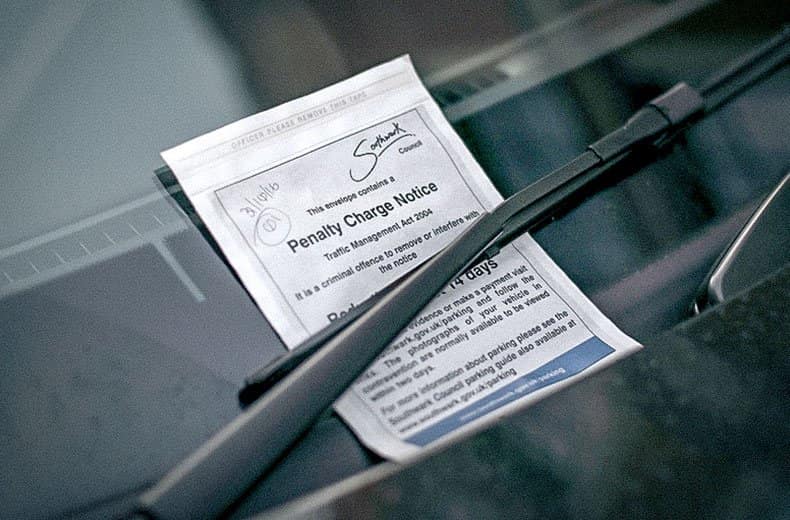
Think you’ve been unfairly caught out by a parking ticket? Try appealing it.
Provide evidence, check the terms and conditions, present a mature and balanced case, and sometimes the ticket can be overturned. If you’re certain it’s unfair, it’s worth submitting an appeal.
If you’ve been issued a ticket and have to hold your hands up, you usually have 28 days to pay. In some cases the fines will be reduced by 50% if you pay within 14 days.
- How to avoid and appeal Parking Charge Notices
- Traffic wardens - know your rights
- Parking guide: where you can and can't park
14. Use apps to find cheap parking spaces
Don’t simply park up in the closest car park you can find, or the one you know the best parking spaces.
Check there isn’t a cheaper one nearby first, using apps such as Parkopedia. Particularly in big cities, this can save you a fortune.
Alternatively, park on the edge of town and take a walk. Your fitness tracker will welcome the additional steps!
15. Don’t overestimate your annual mileage when buying insurance
If you generally tell your insurance company you cover 10,000 miles a year but you in reality drive far less than this, you could be paying for a higher-risk premium than is actually needed.
Give the company a realistic figure instead - but don’t underestimate, or you could be left without cover.
Looking to save more money on your car insurance? Check out these 8 surprising things that can affect the cost of your car insurance, just don't accidentally invalidate your cover in the process.
16. Pay as you go car insurance options
Car insurance makes up a large part of the cost of motoring. So, why pay for the miles you don’t drive?
If you are driving under 6,000 miles per year you could be saving on your car insurance.
There are different types of products available including pay per hour (Temporary Car Insurance).
17. Park away from other cars
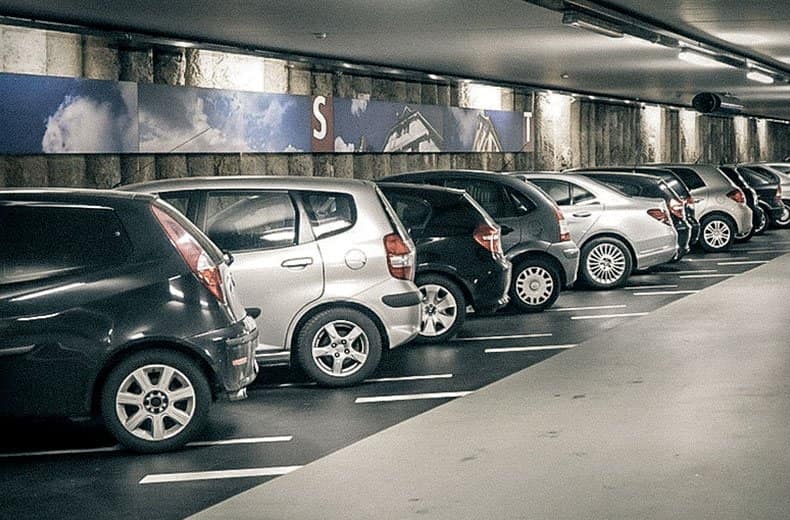
If your car is on finance, it will be assessed for condition before you hand it back. You’ll be charged if any damage outside of normal wear and tear is noticed.
An easy way to reduce the risk of damage it to park away from other cars, so their car doors can’t damage it, and they can’t scrape it when driving in and out.
Remember, even small car park panel dings are logged by the dealer on the condition report. If you own your vehicle, any potential buyer will definitely use dings and scrapes as a way to haggle you down on price, too.
Practice bay parking if you are not a confident driver.
18. Buy a smartphone holder
If you are caught using a mobile phone in your hands behind the wheel, you are now fined £200 and given six points on your licence.
If you use your smartphone for navigation or as an audio player, and it is not in a fixed position, you could be penalised for breaking the law.
Avoid the risk by securing it in a smartphone holder, ideally fixed to the dashboard, not the windscreen so it does not obscure your view.
A good quality smartphone holder will set you back between £10 and £20, but this works out a lot cheaper than the potential fine and points on your licence.
Remember, having endorsements on your licence might increase your insurance premium, further increasing your motoring costs.
19. Don’t use your windscreen wipers on ice
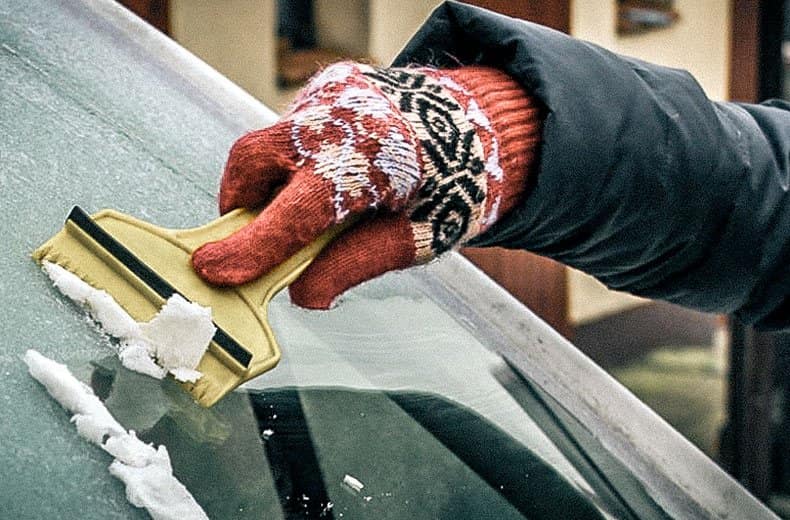
Windscreen wipers can cost £20 or more to replace. And they’ll wear out much more quickly if you use them on ice in winter - you even risk tearing them entirely.
Scrape the screen or use de-icer instead - this is also much safer (and less irritating for sleeping neighbours). If you haven’t got a scraper, prices start from as little as £1.
Many Skoda models even come with a built-in ice scraper in the fuel filler car or boot trim - a handy little bonus.
Knowing how to demist your windscreen in double-quick time can save you time and money.
Always pack one in your winter breakdown kit.
20. Check for obvious faults ahead of your car's MOT
According to the Society of Motor Manufacturers and Traders (SMMT), around 1.5 million vehicles fail their MOT due to simple things such as faulty bulbs, tyre tread and empty washer fluid bottles.
There are really simple things you can check for prior to an MOT - whether your bulbs are all working, the state of your tyres, the state of your windscreen wipers, even if the washer bottle contains any fluid.
No matter how simple they are, the garage won’t rectify them before completing the MOT, and will fail you for the most minor faults.
Why risk the inconvenience and potential expense? You can keep on track and save money with your car's maintenance by getting a service or MOT plan to spread the cost over two years.
Service, repair or MOT?
You can trust the RAC with our local approved garages and NEW mobile mechanics.


21. Source car parts yourself
Been quoted big money by a dealer to replace parts?
Consider buying them yourself online and using a local (but well-rated) garage to fit them.
This could potentially save you several hundreds of pounds - but make sure to source parts that guarantee an OEM (manufacturer) level of quality.
If you're looking for a reliable local garage, look no further than the RAC's approved garages.
22. Know what your PCP mileage limit is and stick to it
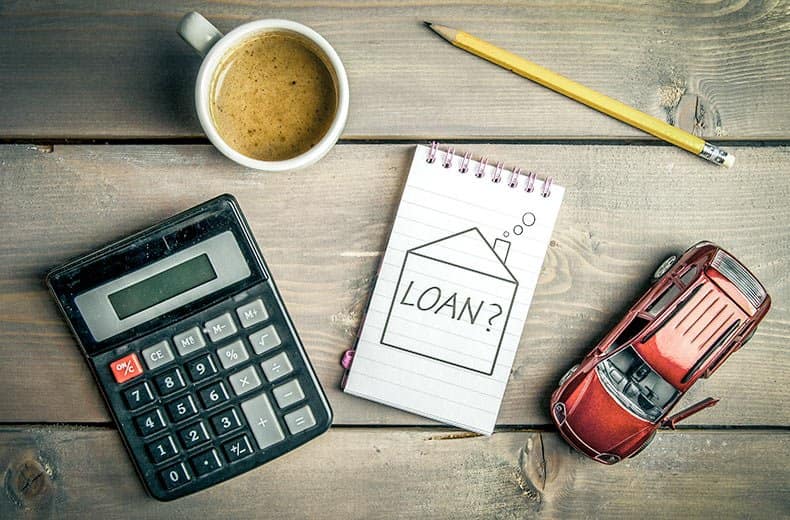
If your PCP car finance scheme covers you for 9,000 miles a year and you actually cover 10,000 miles a year, you face excess mileage surcharges at the end of it.
These can be punitive, but even a minor-sounding 0.06p per mile surcharge adds up to a £180 bill if you go 3,000 miles over.
Often, it would have been cheaper to factor this mileage into the PCP deal in the first place.
23. Empty your boot and ditch the roof rack
Don’t carry unnecessary weight around with you. On average, every 50kg will increase your fuel consumption by 2%.
A boot full of junk means you’re using extra fuel for nothing. Emptying it out will give small savings that will add up the more you drive - particularly if your motoring is mainly stop-start driving and city commutes.
Remove your roof bars when they’re not in use. Not only do they weigh between 3kg to 5kg, they’ll also increase the amount of drag, increasing fuel consumption by about 10%.
Keeping track of these top fuel saving tips can help you cut costs.
24. Car share or use a car club
Do you really need to drive? Could you car share instead?
You don’t even need to know someone going in the same direction, services such as blablacar.com bring trusted carpooling to everyone.
Simply enter where you are and where you want to go, and the service will hunt out available rides. You can even add your own car to the service.
Failing that, many of those who live in urban areas might save money by simply borrowing a car whenever you need one, rather than paying out for tax and insurance on a car you only use occasionally.
Car clubs usually let you reserve cars via an online app, and you can often borrow them for anything from half an hour to a couple of days.
Many clubs cost very little, or you can pay more for a bigger or more upmarket car.
This includes all running costs including tax, insurance and even fuel.
25. Monitor your fuel economy
.jpg)
Do you know how many miles per gallon (MPG) your car returns under everyday driving?
Don’t rely on its trip computer - they’re not always accurate - but use an app on your phone to calculate your MPG every time you fill up.
Once you know how well it performs, work out how you can improve it - and challenge yourself by making a game of it.
Fuel efficient driving can save hundreds or even thousands of pounds at the pump over a year.
26. Wash your car yourself
Hand car wash centres are everywhere. They charge just a few pounds and save you effort, so where’s the harm?
Well, even a £10 monthly car wash adds up to £120 a year, but doing it yourself will not only save you money, it will also allow you to keep an eye on the condition of your car and get any damage rectified before it gets too bad.
Knowing how to wash your car twice as well in half the time will save you time and money.
27. Use your smartphone so you don’t overstay on prepaid parking
Paid for parking? Not returning to your car in time can prove expensive if you’re hit with a fine.
But many parking companies offer a service which lets you use an app on your phone to pay for parking.
Although there is a small convenience fee, it’ll notify you when your parking is nearly up - and you can extend it remotely so you’re not caught out.
28. Get a black box insurance policy
A black box policy works by monitoring your driving via a small black box that's installed in your car.
It builds a picture of the way you drive, allowing the insurer to treat you as an individual and reward safe driving with a lower premium.
If you are a young driver, black box insurance can be particularly helpful, but there are also other ways of making insurance cheaper for younger drivers.
Generally smaller engines tend to attract smaller premiums, so choose your first car carefully.
Make sure you’re accurate about the amount of miles you will drive over the year, as overestimating can cost you more.
29. Buy tax annually - not monthly
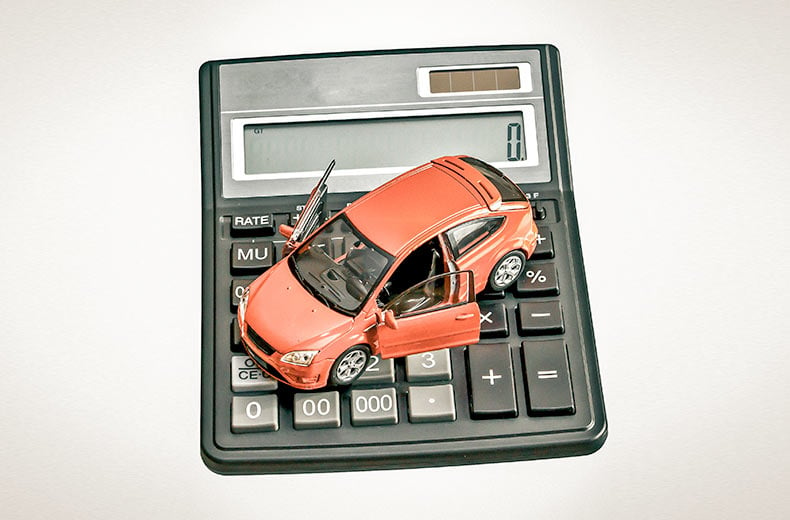
You can pay vehicle excise duty (VED - or road tax) annually, monthly or every six months.
Many go for monthly to split it into smaller payments, but it works out more expensive over the entire year because an admin fee is added.
Pay the full amount at the start of the year and be comfortable that it’s paid for the rest of the year.
Car tax bands vary depending on yout type of vehicle.
30. Get a quote for fully comprehensive insurance - it may be cheaper
If you’re on a budget, many assume third party insurance (the minimum legal requirement which only covers damage to other vehicles) will be the cheapest.
But try getting quotes for fully comprehensive cover (which also covers damage you’re responsible for to your own vehicle).
The weird algorithm of insurance companies’ computers often means it’s cheaper than third party.
You’ll be glad of it if you’re in an accident that’s your fault, too.
RAC members often pay less for insurance with the RAC too.
Black Box Insurance
Want to pay less for your car insurance? Whether you’re a new driver or just looking to reduce costs, we can help.


31. Downsizing to a smaller car
Do you have a large SUV but only do short city journeys the majority of the time you get behind the wheel? Maybe the kids have left home and you no longer need that people carrier?
If so, then it might be advisable to find a smaller and more economical vehicle – and maybe even make more money from your sale.
A smaller car (and engine) should mean reduced costs at the pump, a lower car insurance premium, cheaper annual car tax, and in most cases it'll be cheaper to fix should anything go wrong.
31. Buying a cheaper car
Following on from the above – replacing your current vehicle with a more economical model will save you money – or could even leave you with more money in your pocket.
Although there are many great larger vehicles on the market – many come with poor fuel economy and maintenance fees can be worryingly large.
Hatchbacks and smaller engined models are good alternatives if you are looking to buy a used car.
32. Switch to EV or hybrid
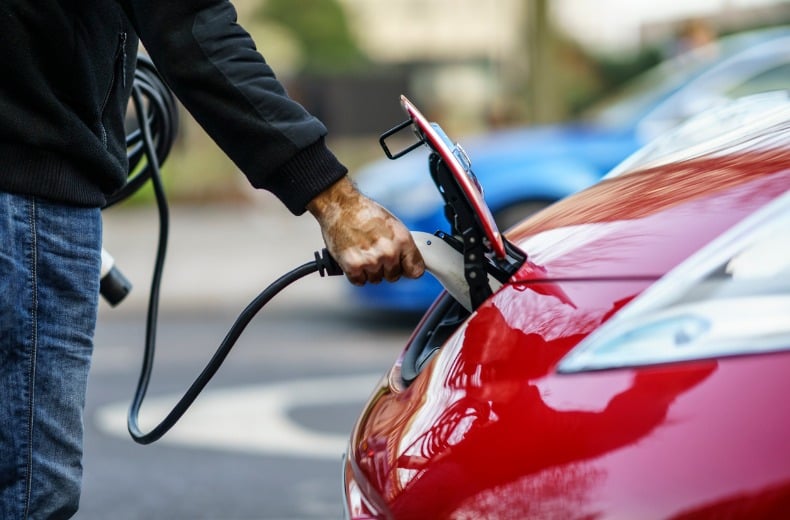
With the high cost of petrol and diesel, making the switch to electric vehicles (EVs) has become increasingly appealing.
Although they may come with a larger initial payment, they can often be cheaper to drive over the long run - particularly if you're able to charge at home and benefit from cheap electricity rates.
EVs often come with cheaper tax and maintenance costs – as well as avoiding all Clean Air Zone payments across the UK.
You can often utilise free or cheaper charge points at your place of work, too, if the UK's growing public charging network looks too expensive.
Hybrids could offer the best of both as another alternative if you can't charge at home
33. Reduce the number of cars you own
According to Statista, there are 1.21 cars per household in the UK. For some families, this is a necessity – but for some it can be an avoidable extra cost.
Sharing one vehicle and managing calendars between all that need to use it can be time consuming but can reduce expenditure.
Never mind the cost of the second car itself, you've also got two sets of tax, insurance and maintenance costs to keep up with.
With the growth of carpool, rideshare and alternative transport options, you don’t always have to walk or cycle to get to your destination.
34. Pre-MOT checks you can do yourself
For any vehicles over three years old, you will need to take your vehicle for its annual MOT.
In the lead up to the test, there are a few things that you should do to prepare your vehicle.
If anything does ned a quick fix before your test, running through an MOT checklist can make sure that you keep costs down.
Keep your car clean and full of clutter. A dirty car could lead to a garage refusing to carry out the MOT.
Check the windscreen wipers are in good condition, with no tears and also check all lights are in working order. You should also check your tyre tread and pressure too.
Make sure you top up all fluid levels – screenwash, brake fluid and oil – before you head to the test.
If you do need a quick repair, consider bringing an expert to you. Mobile mechanics can carry out a wide range of repairs on your driveway or work car park.
35. Cleaning your car
Not only will cleaning your car make it easier for the MOT, it can also lead to less damage and maintain is value.
You may also spot smaller scratches and imperfections that you would have otherwise missed – and can deal with them before they become more of an issue.
Dirt and debris can eat away at the paint finish – so wash your car when you can.
Cleaning your car can also lead to improved fuel efficiency. A layer of dirt can lead to drag.
36. Simple maintenance throughout the year
Caring for your vehicle will lead to saving money as well as retaining its value.
If you are looking at downsizing your vehicle, then simple maintenance checks and keeping your car clean are simple ways to maintain a decent resale value.
By fixing small issues before they become bigger ones, you will get into a habit of checking your vehicle for problems.
This doesn’t require a lot of effort and the reward can lead to massive savings over the life of your vehicle.
- Money saving winter driving tips – the ultimate guide
- Money saving MOT tips – your complete guide
- RAC Fuel Watch – latest petrol and diesel prices
RAC Breakdown Cover
Join the RAC and get breakdown cover. Our patrols fix 4 out of 5 vehicles on the spot, with repairs done in just 30 minutes on average.
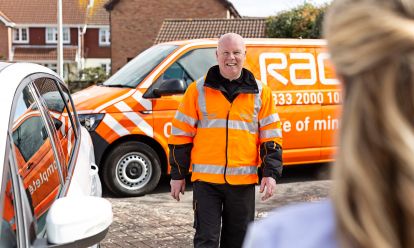

37. Fuel loyalty schemes
Currently, fuel prices are rising, and the cost of living crisis is impacting millions of people across the UK. With not much hope of a brighter future for the industry, there are a few ways where you can make some savings – primarily, signing up to loyalty cards at your local forecourt.
You can sign up for fuel cards and loyalty schemes at the majority of supermarket and petrol station chains and offer a variety of benefits.
These can be money of fuel, points to spend in the supermarket, can be used to buy vouchers, and so much more.
It is worth checking what you nearest petrol station and what they offer customers.
38. Use YouTube rather than rely on an expert
If you have a small maintenance or cleaning issue for your vehicle, don’t rely on a garage – sometime the answer is easily available online.
The RAC has some helpful video guides on YouTube.
There are many other channels that provide easy and simple fixes for any problem you may have. Some may require some expert understanding or tools, so don’t attempt something you are not comfortable doing – as it may make the issue worth.
39. Plan ahead
Preparing for a road trip can help save you time and money.
Knowing the best place to get fuel, avoid traffic, where the fuel stations are on your journey, and where to find cheap or free parking spaces can help save cash.
Check the weather, do your pre-journey car checks, and pack anything you might need.
40. Parking sensors
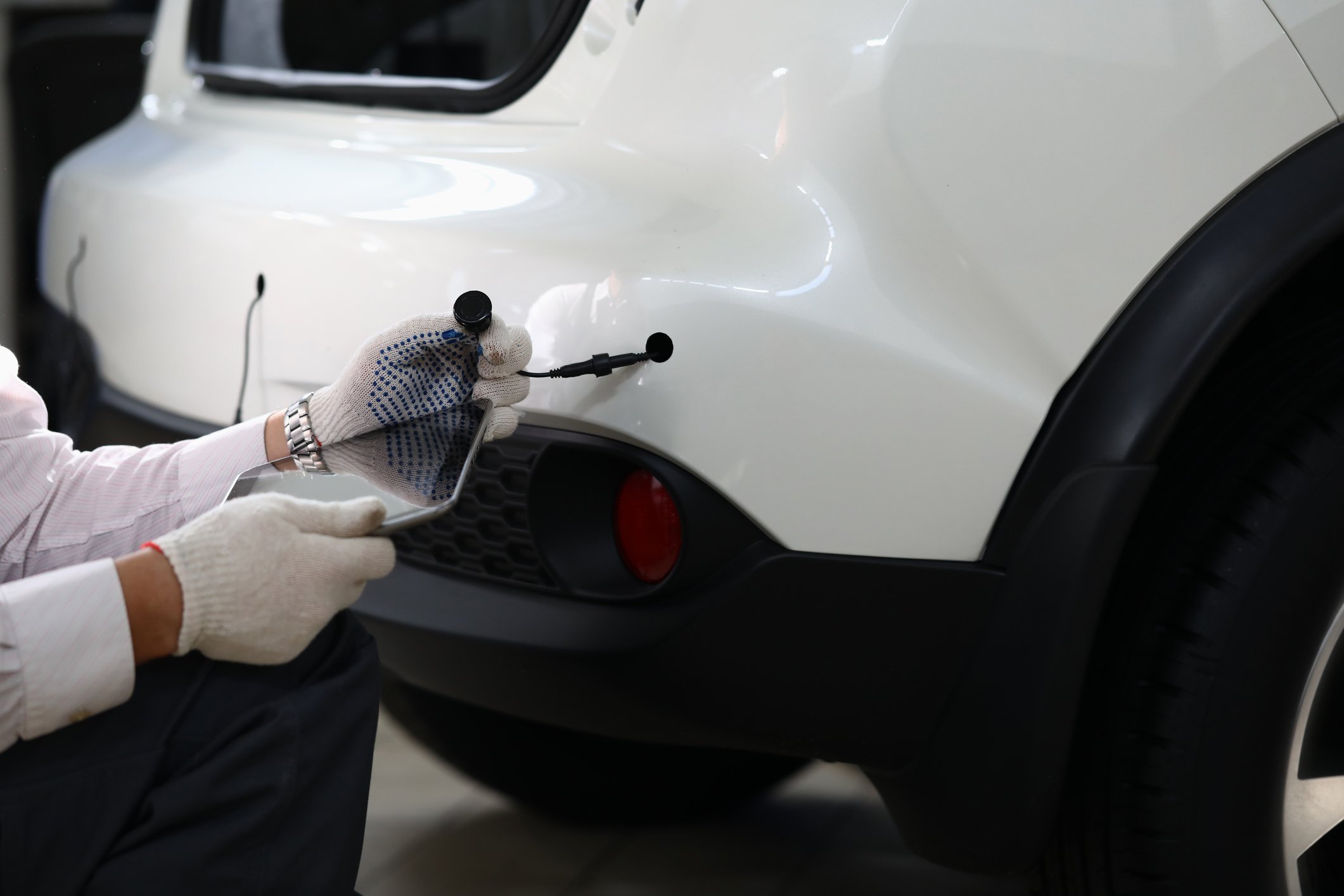
Do you or anyone who drives the same vehicle struggle with reverse or bay parking? For a relatively small initial payment, you could invest in parking sensors.
This technology will let you know that you are getting incrementally closer to another car or object.
It provides a warning that you may not have noticed in your mirrors or blind spots. As a result, it could save you from causing serious damage to the vehicle.
It's standard fitment on many modern cars, but can be fitted aftermarket from a couple of hundred pounds - likely cheaper than a single repair bill on a bumper alone.
41. Use modern city travel
In many towns and cities across the country, there are opportunities to get to your final destination without using a vehicle.
Whether it be e-scooters, ride sharing apps or park and rides – there are many alternatives where you can leave your vehicle and use another option.
Currently many cities in the UK use low emission zones, including London, Bristol, and Oxford.
Using these modern travel methods could be a way for you to avoid large fines and fees if your vehicle doesn’t meet the necessary standards.
42. Do you have the right tyres for winter?
Throughout the year, your tyres have to contend with different road and weather conditions – all of which can lead to damage and detonation.
Making your tyres last longer can help save costs.
However, buying the right tyres for your vehicle is equally important for safety and saving money.
Service, repair or MOT?
You can trust the RAC with our local approved garages and NEW mobile mechanics.


43. Change gears earlier
Also known as short shifting – if you change gears earlier than you normally would, you will end up being more fuel efficient when behind the wheel.
In general, if you are driving in a higher gear with lower RPM (less than 3000), then your engine will use less fuel.
A key part of successful short shifting is being able to anticipate the road ahead – because if you let the revs drop too low, then you will stall the vehicle. Repeatedly doing this could damage the engine.
44. Don’t exceed the speed limit
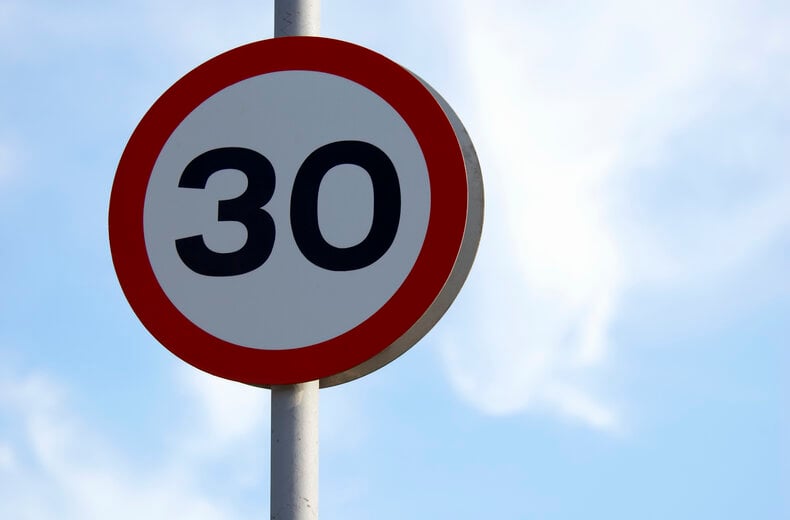
Although you should not speed for any reason – police data shows that three in four motoring offences are due to drivers exceeding the speed limit.
This can lead to speeding fines – and points on your licence. Gaining too many points will lead to you eventually losing that licence – causing further issues for yourself.
Also, aggressive acceleration is far from fuel efficient.
45. Don’t warm your engine up before driving
During the colder months, many people turn on their engine and let their vehicle warm up before heading off.
This wastes fuel and isn’t needed for the vehicle to be working at optimal condition - certainly for anything more than it takes to defog the windows.
It is advisable in many vehicles to slowly accelerate and keep the revs down when an engine is cold, rather than let it increase in temperature before heading off on your next road trip.
46. Do you need your air con on?
During the warmer months, many people use their air conditioning to try and keep cool.
Although it is an important feature to have in vehicles – especially on longer journeys – but when you are only quickly popping to the shops or dropping the kids at school, it is more economic to try and void turning it on.
47. Set reminders on your smartphone
Throughout the year, there are several key dates for car owners – the annual MOT, insurance, car tax and maybe even the annual service.
Missing some of these can lead to serious fines and expensive premiums for the future.
Using a calendar on your smartphone that gives you prompts is an easy way to stay on top of this and make your life easier.
48. Reward schemes
Many employers across the UK use employee benefit schemes to entice people to join and stay with the company.
In some cases, businesses will offer free or discounted breakdown cover or vehicle insurance.
Others may provide discounted services or car washing.
Vouchers and discount codes can also be provided employees for different retail stores than can be used to make your life as a car owner easier.
49. Rent out your driveway
A growing phenomenon in recent years has been the ability to rent out your driveway for a fee or subscription service.
In many towns and cities across the UK, the price for parking has risen exponentially. And with public transport, ride sharing apps and e-scooters growing in popularity, there are easier ways to get into major cities.
If you live in one, then look into this to make some extra money – especially if you often have space out the front of your home.
50. Do you need to drive?
Finally, before you pick up your keys and head out the door, you should probably consider if you should be driving.
If you are heading two minutes down the road or making an unnecessary journey – then think how much you could save over a year if you eliminated these road trips.
Congratulations, by making it through our list, you're already well on your way to saving yourself money behind the wheel. Do you know anymore great motoring money-saving tips? Share your wisdom in the comments below.
Car playing up?
Get quality repairs at a fair price, plus a 12 month warranty with RAC Approved Garages.
